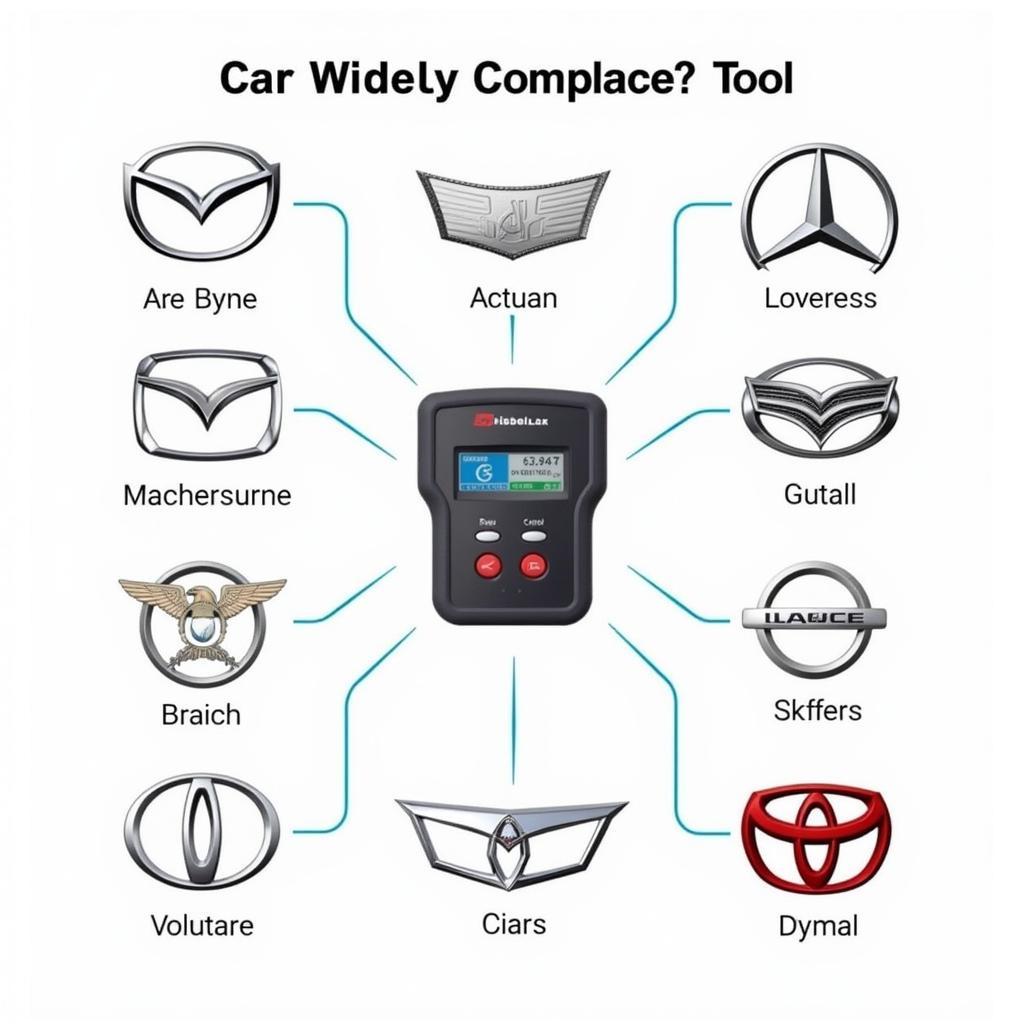The world of car repair has gone digital, and using an Xbox 360 Diagnostic Tool is a surprisingly effective way to troubleshoot your vehicle. Whether you’re a seasoned mechanic or a car enthusiast looking to understand your car better, this guide will explore the ins and outs of utilizing an Xbox 360 for car diagnostics.
Understanding the Power of an Xbox 360 Diagnostic Tool
While it might seem unconventional, the Xbox 360, with its processing power and connectivity options, can be a powerful tool for car diagnostics. By connecting your Xbox 360 to your car’s OBD-II port using a compatible adapter cable and specific software, you can access a wealth of information about your vehicle’s systems.
[image-1|xbox-360-obd2-connection|Xbox 360 Connected to Car’s OBD-II Port|An Xbox 360 console connected to a car’s OBD-II port using a specialized adapter cable, ready for vehicle diagnostics.]
Benefits of Using an Xbox 360 for Car Diagnostics
Using an Xbox 360 for car diagnostics offers several advantages:
- Cost-effectiveness: Leveraging your existing Xbox 360 can be more budget-friendly than purchasing a dedicated standalone diagnostic scanner.
- User-Friendly Interface: The familiar Xbox 360 interface can make navigating diagnostic software more intuitive, especially for those already comfortable with the gaming console.
- Data Logging and Analysis: Some software options allow for data logging, enabling you to track vehicle performance over time and potentially identify intermittent issues.
Setting Up Your Xbox 360 Diagnostic Tool
- OBD-II Adapter: Purchase a compatible OBD-II to Xbox 360 adapter cable. Ensure the adapter supports your car’s make and model.
- Diagnostic Software: Research and choose diagnostic software compatible with both the Xbox 360 and your vehicle. Numerous options are available, offering varying levels of functionality and complexity.
- Installation: Install the chosen diagnostic software onto your Xbox 360 console. Follow the software provider’s instructions carefully.
- Connection: Connect the OBD-II adapter to your car’s OBD-II port, usually located under the dashboard on the driver’s side. Connect the other end of the adapter to your Xbox 360.
[image-2|diagnostic-software-interface|Car Diagnostic Software Interface on Xbox 360|The display of a car diagnostic software running on an Xbox 360, showing various vehicle parameters and diagnostic trouble codes.]
Common Uses of an Xbox 360 Diagnostic Tool
- Reading and Clearing Diagnostic Trouble Codes (DTCs): Retrieve and interpret DTCs stored in your car’s computer, indicating potential issues. Clear the codes after addressing the underlying problems.
- Monitoring Live Data: View real-time data from various sensors, such as engine RPM, coolant temperature, oxygen sensor readings, and more. This information is invaluable for diagnosing issues and monitoring vehicle performance.
- Actuator Tests: Depending on the software, you can perform tests on various actuators like fuel injectors, solenoids, and windows to verify their functionality.
“Using an Xbox 360 for car diagnostics helped me pinpoint a faulty oxygen sensor that was causing poor fuel economy. The live data monitoring feature was instrumental in confirming my suspicions,” shares John Miller, a certified automotive technician.
Limitations to Consider
- Software Compatibility: Not all car models or software programs are fully compatible with an Xbox 360 setup. Research compatibility thoroughly before investing in this solution.
- Limited Functionality: Compared to professional-grade diagnostic scanners, Xbox 360-based solutions may offer fewer features or lack advanced functionalities like bi-directional controls for certain vehicle systems.
Conclusion
An Xbox 360 diagnostic tool, while unconventional, presents a viable and potentially cost-effective solution for car diagnostics, particularly for enthusiasts and those comfortable with technology. By understanding its capabilities, setting it up correctly, and being aware of its limitations, you can harness the power of this unique approach to car maintenance.
Need help choosing the right equipment or want to explore professional-grade diagnostic tools? Contact ScanToolUS at +1 (641) 206-8880 or visit our office at 1615 S Laramie Ave, Cicero, IL 60804, USA.

